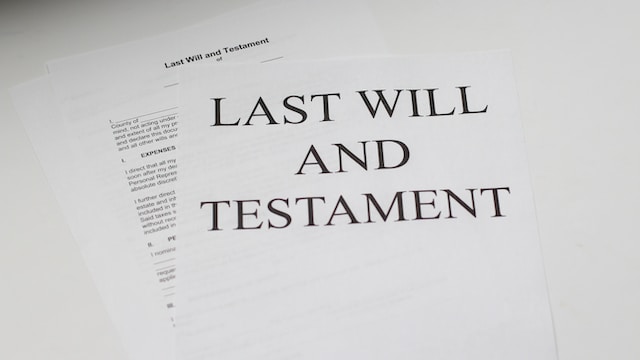
Planning for future contingencies such as incapacity or the care of dependents is an essential, yet often challenging endeavor. Ensuring the well-being of yourself and loved ones during unpredictable circumstances necessitates not only foresight but also a comprehensive understanding of legal processes within the Canadian system. Whether it’s foreseeing a time where one might not be able to make personal, health, or financial decisions or planning for the care of dependents, these considerations underscore the importance of having well-structured, legally sound arrangements in place. As such, it’s not merely about expressing personal wishes; it’s about translating those wishes into legally enforceable directives, ensuring they are implemented exactly as intended. This necessitates the creation of key legal documents, navigating intricate laws and regulations, and making decisions that could significantly impact your assets and dependents. Professional legal advice becomes an indispensable ally in this process, providing the requisite expertise and guidance to navigate this complex landscape. Thus, this endeavor isn’t a solitary task, but a collaborative journey involving you, your loved ones, and legal professionals to ensure that your future plans stand on solid legal ground.
Decoding Incapacity and Guardianship
In the realm of legal affairs, incapacity signifies a situation where an individual, due to certain physical or mental conditions, becomes incapable of managing their own affairs. This could encompass a range of decisions from personal well-being to financial management. In such instances, the law allows for the appointment of a trusted individual, known as a guardian, to make these crucial decisions on the incapacitated person’s behalf.
In the context of will planning, this takes on particular importance. This process allows the person writing the will, known as the testator, to proactively determine who they would like to manage their affairs if they were to become incapacitated. It’s not a decision to take lightly, as the chosen individual will have significant influence over personal, financial, and sometimes health-related decisions.
Similarly, guardianship in a will focuses on safeguarding the testator’s dependents, particularly minor children, in case of their untimely demise or incapacitation. It involves appointing a responsible and trusted person to care for and make decisions on behalf of the children. Designating a guardian can be a deeply personal and sometimes difficult decision, as it involves entrusting the welfare of loved ones to another.
There are resources available that can provide guidance through these complex and emotionally-charged processes. One such tool is the paralegal directory, which can be used to find experienced legal professionals who can offer expert advice on planning for incapacity and guardianship in a will. With the right guidance, you can ensure that your wishes and the interests of your loved ones are adequately protected in any eventuality.
Preparing for Incapacity
One of the most effective strategies to prepare for potential incapacity is to create Power of Attorney documents. These legal documents, prevalent in the Canadian legal system, allow you to appoint a person to make crucial decisions on your behalf, should you become unable to do so. There are two types of these documents:
Power of Attorney for Property: This legal document enables you to nominate an individual who will manage your financial affairs, including your property and other assets, if you become incapacitated. If you are involved in a joint tenancy in a will, consulting with a real estate lawyer can provide invaluable advice on the management of your share in the event of incapacity.
Power of Attorney for Personal Care: This document empowers a chosen person to make critical health and personal care decisions on your behalf, should you become unable to do so.
As you draft these important documents, the guidance of a legal professional can ensure they cater to your specific needs, and are correctly prepared, meeting all legal requirements.
Addressing Guardianship
Determining a guardian for your minor children is one of the most critical aspects of a will. This nominated individual is given the responsibility of caring for your children if both parents become incapacitated or pass away. When choosing a guardian, you must consider their relationship with your children, their capacity to provide care, and their willingness to assume this responsibility.
Incorporating guardianship provisions in your will requires careful drafting. A will lawyer can help guide you through this process, ensuring that the guardian clause accurately reflects your wishes and meets all legal requirements.
Staying Current: Regular Updates
Life’s circumstances change, and as such, your will should reflect these changes. Regularly reviewing and updating your will, especially when you experience significant life changes such as marriage, divorce, the birth of a child, or the death of your appointed attorney or guardian, is crucial.
Challenges to the Will: How to Prepare
In some instances, a will may be contested or challenged after your passing. The reasons for challenging a will can be multifaceted, ranging from allegations of undue influence or fraud, to assertions that the will wasn’t correctly executed. By ensuring your will is well-crafted, regularly updated, and includes comprehensive incapacity and guardianship plans, you can minimize the risk of a successful challenge.
A will lawyer can be instrumental in this process, guiding you in creating a robust, legally sound will that is a true reflection of your wishes and is capable of withstanding potential challenges.
Planning for incapacity and guardianship in a will is a crucial step in safeguarding both you and your loved ones. Although the process can seem overwhelming, with the guidance of experienced legal professionals such as will or real estate lawyers, you can navigate it successfully. Their expertise can assist you in drafting Power of Attorney documents, appointing a guardian for your children, and ensuring your will is resilient against challenges. As you plan for the future, remember that preparing for these contingencies is the best way to ensure you’ve done everything possible to protect yourself and those you care about.
Back to blogs